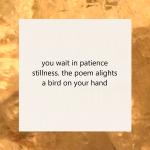 Anthony Burgess’ A Clockwork Orange succeeds purely on the strength of its narrator’s voice – but what a voice!
Anthony Burgess’ A Clockwork Orange succeeds purely on the strength of its narrator’s voice – but what a voice!
The novel’s story is told by 15-year-old Alex who lives in a vaguely dystopian, vaguely futuristic country that seems to be Britain. Alex can check off every item under the DSM definition of sociopath. He bullies his parents and friends. He brutally assaults people at random. He gang-rapes a woman, rapes two young girls, and kills an old woman while trying to burglar her house. Alex regards this as all good youthful fun. When confronted by authorities, he knows how to pantomime innocence or remorse. When punished, he laments that no one cares or feels sorry for poor Alex.
All this promises to make Alex pretty ugly company, but sociopaths are often noted for their charm and wit, and Alex has these in aplenty – not to mention exuberance, intelligence, formidable powers of observation, and a passionate love of classic music.
He also has the advantage of “nadsat,” the famous Russian-influence English slang Burgess invented for Alex, which puts the violence Alex commits at a remove from the reader and lends it a fantastical, almost fairy-tale quality.
Burgess described A Clockwork Orange as a “jeu d’esprit” that he wrote in three weeks, and it certainly feels like a book created in a burst of white-hot inspiration and imagination.
And it is a good thing, too. Because the “philosophical” parts of the novel, for which A Clockwork Orange is often complimented, strike me as (at best) heavy-handed and (at worst) laughably obvious.
So the philosophical meditation part of A Clockwork Orange goes like this.
First, Alex runs around assaulting, raping, and murdering. Then he is sent to prison where he is subjected to behavior modification that physically incapacitates him any time he thinks about committing violence. Then he un-behavior modifies himself by jumping out a window. Then he decides it’s time to grow up, find a nice wife, and have a cute baby.
Get it?
In case you don’t, Burgess sprinkles handy hints throughout the novel. So there is a book within a book, also titled “A Clockwork Orange,” from which Alex helpfully reads a summary passage on how you shouldn’t turn men into mindless machines. There is also the prison chaplain, just before Alex goes for his behavior modification therapy, worrying out loud to the young man:
Does God want goodness or the choice of goodness? Is a man who chooses the bad perhaps in some way better than a man who has the good imposed upon him?
Burgess leaves us in no doubt of the answer to this question, and since he has created the world in which the question is asked, he gets to arrange his “facts” and “reality” to support his talking points. (Ayn Rand was a great one for doing that too.)
A Clockwork Orange is also noted for its satirical elements, and these were better than the philosophy, but not exactly revelatory. The police, politicians, Christianity, and what look like Communist intellectuals all get a good bracing spank and that was fine.
For me, one of the interesting things about reading A Clockwork Orange was how it compared and contrasted to Graham Greene’s Brighton Rock.
Greene’s novel features Pinkie, another murderous teenage British sociopath at the center of another “novel as meditation” – this time on the nature of sin and morality. Greene’s novel doesn’t deliver the same jolt of pure linguistic bliss as A Clockwork Orange, but it doesn’t bludgeon you with its themes either. It’s a close call, but I like Greene’s book a little better. I would fully recommend reading both, however.


A Clockwork Orange is my husband’s favorite book, I’ll have to recommend novel by Graham Greene. Great review, thanks!
And thanks for the thanks. Greene’s book is a different experience, but I think it is a worthwhile one.
Great book. Great movie. Great review.
Thanks. It’s been 20 years since I’ve seen the movie. Now that I’ve read the book, I think I need to see it again.
Brighton Rock, you say? I shall have to give that one a look. Up till now it was only a title to me. Great review of A Clockwork Orange. Last time I read it, I was too young to see Burgess’ didactic intentions, but now that you mention them, they are indeed very obvious.
Brighton is quite good, but a little nasty. Greene didn’t always have the sunniest opinion of human nature.
Nor do I 🙂
He’s your man, then.